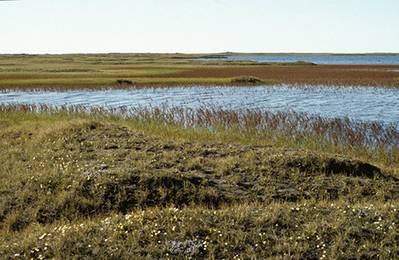Oil drilling in a vast Alaskan wildlife refuge could move a step closer to reality on Wednesday as a Senate panel votes to open part of the reserve coveted by conservationists.
Republicans, who
control Congress and the White House, have long wanted to prise open a portion of the
Arctic National Wildlife Refuge on the north coast known as the 1002 area.
Senator Lisa Murkowski, an Alaska Republican and the head of the Senate energy committee, says drilling in the refuge is needed to provide jobs and boost the country's resource base.
But former U.S. interior department officials, who worked under both Republican and Democratic presidents, said drilling in the refuge was risky, and the energy boom in the continental United States makes the economic argument to explore in the refuge ring hollow.
"We don't need to develop the Arctic Refuge – one of the costliest, and riskiest places to develop energy resources – to promote American energy security," said Steve Williams, director of the U.S. Fish and Wildlife Service under former President George W. Bush, a Republican.
He and five former officials made the comment in a letter sent on Tuesday to members of Murkowski's panel, a copy of which was seen by Reuters.
The region, protected since 1960 and renamed the Arctic National Wildlife Refuge in 1980 by former President Jimmy Carter, is home to wildlife populations including caribou, polar bears and millions of birds that migrate to six of the seven continents.
Getting 60 votes in the 100-member Senate to approve drilling in ANWR has been elusive for decades. But Republicans have attached Murkowski's measure to budget legislation.
Once it passes her panel, it will be part of the wider legislation that only needs 50 votes to pass. That bill faces hurdles as many provisions are being attached to it, such as tax reform.
Murkowski's measure would create an oil and gas drilling program on ANWR's coastal plain and require at least two lease sales within 10 years.
Republicans had asked Murkowski to come up with a bill that would provide $1 billion in revenue to help pay for tax cuts. The Congressional Budget Office said the lease sales would provide $1.1 billion.
But Democrats complained the assessment was too optimistic. Recent lease sales in
Alaska have earned far less because of little interest to drill in the harsh, frigid conditions when there is plenty of oil in Texas, North Dakota and other states.
(Reporting by Timothy Gardner; Editing by Clarence Fernandez)








